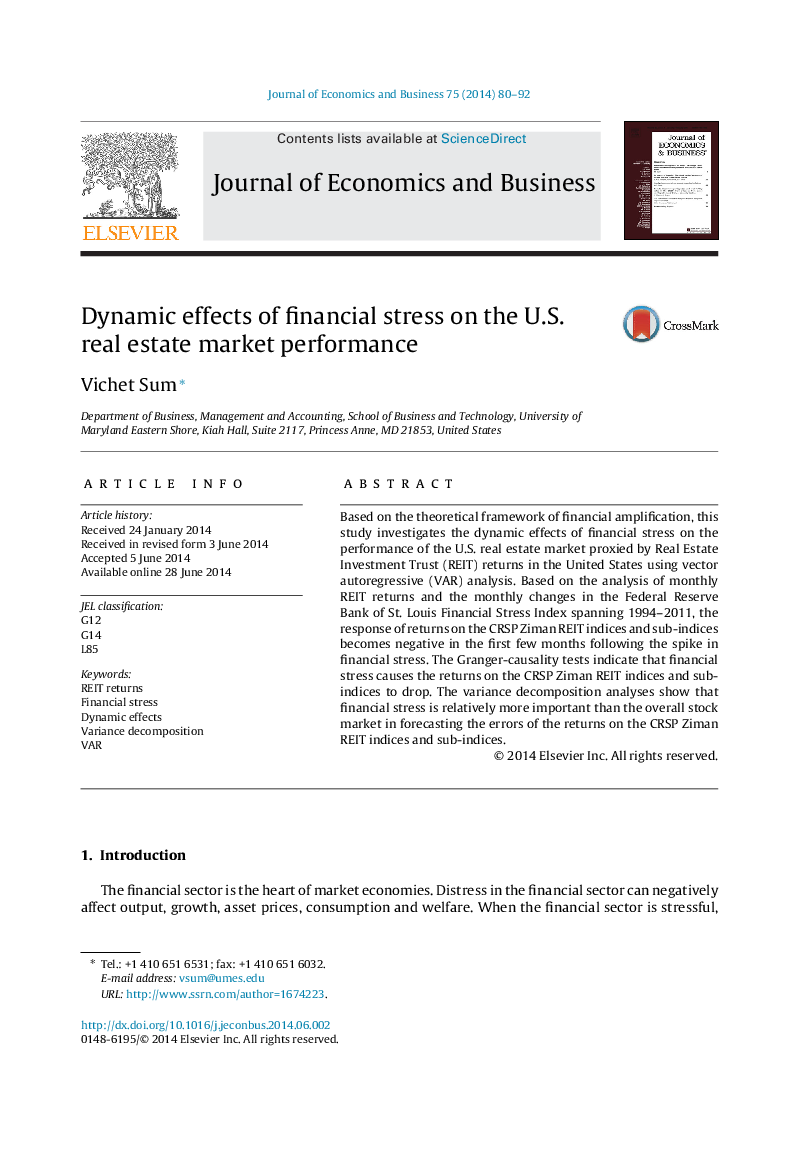| Article ID | Journal | Published Year | Pages | File Type |
|---|---|---|---|---|
| 957864 | Journal of Economics and Business | 2014 | 13 Pages |
•Returns on the REIT indices and sub indices negatively respond to financial stress shock in the first few months.•Financial stress Granger-causes the returns on the REIT indices and sub indices to drop.•Financial stress does not Granger-cause the returns on the REIT indices and sub indices in the period before the financial crisis.•Financial stress, stock market return, and returns on REIT indices and sub indices mutually Granger-cause each during the financial crisis period.•Financial stress is relatively more important than the return on the overall stock market in forecasting the errors of the returns on the REIT indices and sub indices.
Based on the theoretical framework of financial amplification, this study investigates the dynamic effects of financial stress on the performance of the U.S. real estate market proxied by Real Estate Investment Trust (REIT) returns in the United States using vector autoregressive (VAR) analysis. Based on the analysis of monthly REIT returns and the monthly changes in the Federal Reserve Bank of St. Louis Financial Stress Index spanning 1994–2011, the response of returns on the CRSP Ziman REIT indices and sub-indices becomes negative in the first few months following the spike in financial stress. The Granger-causality tests indicate that financial stress causes the returns on the CRSP Ziman REIT indices and sub-indices to drop. The variance decomposition analyses show that financial stress is relatively more important than the overall stock market in forecasting the errors of the returns on the CRSP Ziman REIT indices and sub-indices.
